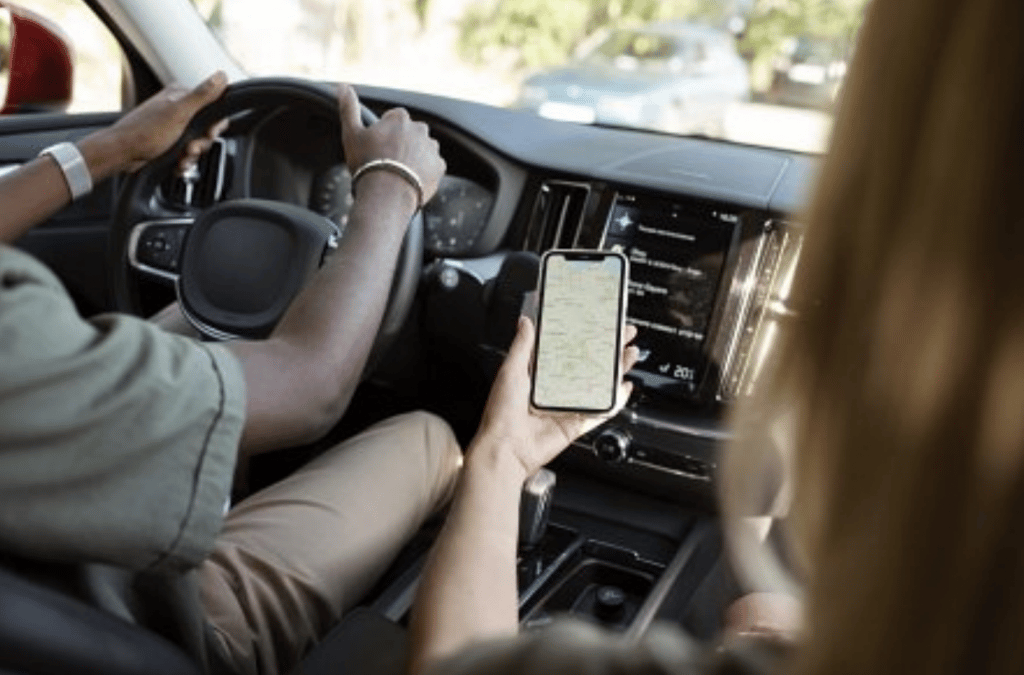Whether you are self-employed or a business owner, our step-by-step guide will help you understand how to maintain a bulletproof, yet simple mileage log to maximize your mileage tax deductions.
Simply put, there is no consequential difference between whether you’re a business owner or self-employed when tracking your mileage for tax deductions. The process and benefits are the same for both.
That being said, let’s hop into the basics of keeping a simple, but IRS-compliant mileage log.
Step 1: Standard mileage rate vs. Actual expense method
The first step towards figuring out how to track mileage for taxes is to decide which calculation basis best suits your needs, using the standard mileage rate or the actual expense method.
Calculating with the standard mileage is simpler and takes less effort however, depending on your vehicle usage habits the actual expense method might be more beneficial in regards to maximizing your business mileage deduction.
For either option, these are the basic requirements for keeping an IRS-compliant mileage log:
- Each business trip’s mileage
- The total miles that were driven for the calendar year
- The date for each trip
- The location/address for each trip
- Year-end and start-of-year odometer readings
- Each trip’s purpose (personal vs. business-related)
All of them are self-explanatory, however, in regards to the last point, you need to provide the total number of miles driven (whole year) for commuting and personal use separately. This does not mean having to include all personal trips in your mileage log as well, however, it is recommended as it would make your log impervious to any discrepancies.
An important note when trying to decide if a trip is business or personal: according to the IRS, a business trip’s starting location has to be your tax home or principal place of business, and the arrival location has to be justifiable as business-related easily. Driving to and from work is always considered commuting, and anything non-business-related is considered personal.
Step 2: How to track mileage for taxes
The next step is to find a way for you to keep track of business trips that best suits your needs. The old-fashioned way of using pen and paper does still exist, of course, however, in today’s day and age there are several other, more optimal options that will save you time and money with the process.
Tracking your trips on the go is by far the most ideal choice, but once again, not with a pen-and-paper type of mileage logbook. There is nothing else out there that allows for such simple mileage logging as using a mileage tracker app. Almost every mileage tracking app out there has manual and automatic tracking modes as well. Logging your trips manually does offer more control over your trips, however, automatic tracking is by far the simplest and most time-saving solution.
For the remainder of this article, I will be sharing my thoughts on a new up-and-coming mileage log app, MileageWise. I will not be listing the benefits of every available function it has to offer, rather I will use MileageWise as an example of how effective it can be to use state-of-the-art software to keep track of your mileage in the simplest way possible.

Automatic mileage log for taxes by MileageWise
MileageWise isn’t just a standalone app, it includes a web dashboard as well to help simplify your mileage logging experience. In short, use the MileageWise mileage tracker app to record your trips on the go, and then visit the web dashboard at least once a month to finalize and print out your IRS-proof mileage log.
The app takes care of calculating the distance between trips, distinguishing between business and personal trips, logging the date for the trips, and even displaying the total miles for the month. In other words, your only job is to open the application, select one of the recording options, and you’re good to go. How simple is that?
Visit the web dashboard at the end of the month to enter your odometer reading, and you’re ready to print out your IRS-proof mileage log. In case you’re worried about the quality of your logs, don’t fret, MileageWise’s AI-powered “IRS-auditor” checks and corrects 70 logical conflicts in your IRS mileage log, it does not let you print out anything unless it can withstand an IRS audit.
Conclusion for mileage trackers
As a business owner or a self-employed individual you have a lot on your plate, and even less time to worry about another item that requires your daily attention, even if it’s for a good cause such as maximizing your business mileage tax deductions.
There are of course a wide range of mileage tracking apps out there, but I truly believe MileageWise is a great choice if you want your mileage logging experience to be as simple and quick as possible.
